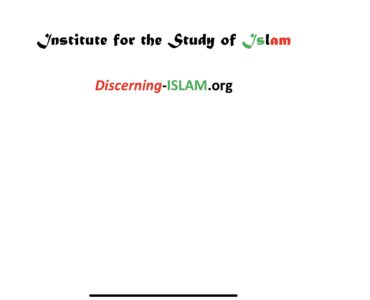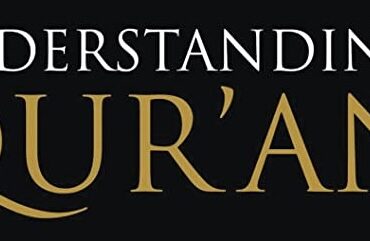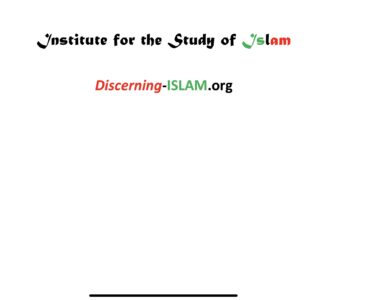
Abū Ḥāmid al-Ghazālī
Abū Ḥāmid al-Ghazālī (1058–1111), also spelled al-Ghazzālī, was a medieval Muslim theologian, jurist, and mystic. Few in the intellectual history of Islam have exerted influence as powerful and varied as Abū Ḥāmid al-Ghazālī. When he died at the age of fifty-two, he had attempted, with an exceptionally perspicacious mind and powerful pen, a grand synthesis of the Islamic sciences that has ever since evoked the wonder and admiration of scholars, both Muslim and non-Muslim.
Born in 1058 in Tūs in the province of Khurasan in Iran, al-Ghazālī studied mysticism, theology, and law with a number of teachers, including the famous Ashʿarī theologian Abū al-Maʿālī al-Juwaynī. He gained distinction in the court of the Seljuk vizier Niẓām al-Mulk, and at the age of thirty-four he was appointed professor at the Niẓāmīyah college at Baghdad. After teaching there for several years, al-Ghazālī suffered a crisis of confidence. Losing faith in the efficacy and purpose of the learning he had acquired and was now disseminating, he searched for the truth and certitude that alone could set his moral doubt at rest. He left his position at the Niẓāmīyah, withdrew from practical life, and spent eleven years in travel, meditation, and reflection. When he returned he had found the object of his search —in Sufism. This was to be a watershed in his personal life and in the intellectual history of Islam. After a brief career at the Niẓāmīyah of Nishapur, he spent the last five years of his life in his native town teaching and writing.
The details of al-Ghazālī’s quest for knowledge that would give certitude are found in his autobiography, Al-munqidh min al-ḍalāl (Deliverer from Error). Al- Ghazālī tells us that, of the four groups of people who claimed to be in possession of the truth, he found that the theologians were engaged in pointless hairsplitting; the philosophers, who followed the Greek tradition, spun insubstantial metaphysical cobwebs; while the esotericists (the Ismāʿīlī taʿlīmīs who believed that only a perfect imam could provide true and authoritative knowledge) could in practice offer nothing better than cheap, diluted Pythagoreanism. It was only the fourth group, the Ṣūfīs, who walked the right path, because they combined knowledge with action, had sincerity of purpose, and actually experienced the serenity and contentment that comes from direct illumination of the heart by God.
Al-Ghazālī’s critique of the philosophers, the esotericists, and the theologians constituted the critical aspect of his work, but there was a constructive aspect to it also; in fact the two aspects are closely linked. The principal motif of all al-Ghazālī’s work is spiritualization of religious thought and practice: form must be imbued with spirit, and law and ritual with ethical vision. Taking salvation in the hereafter as the final goal, and therefore the ultimate point of reference, he set out to identify and analyze the aids and impediments to that goal. This resulted in his best-known work, Iḥyāʿ ʿulūm al-dīn, an attempt to integrate the major disciplines of Islamic religion — theology and law, ethics and mysticism. Here as in other works al-Ghazālī seeks to demystify Islam. He maintains, for example, that in order to be a Muslim it is sufficient to hold the beliefs that have been laid down by God and his Prophet in the Qurʿān and sunnah, and that knowledge of the complex arguments advanced by the theologians is not a requisite of faith. In law, similarly, casuistry is condemnable, for by retaining the form at the expense of the spirit, it defeats the very purpose of the law. In ethics he offers a detailed discussion of a series of vices and virtues, calling love of the world the root of all evil and love of Allah the highest good. The essence of religion is experience, not mere profession, and the Ṣūfīs are the ones who are able to experience the realities that theologians only talk about. The Iḥyāʿ is thus not only a theoretical statement, it is also a practical guide, and it is this union of theory and practice, of form and spirit, that gives it its special place in Islamic literature.
Al-Ghazālī was concerned not only with reviving the Islamic disciplines but also with reforming society in a practical way. In his works he offers candid assessments of the roles of different groups in society. He comes down hard on the generality of Muslim scholars, who, he believes, are chiefly to blame for the social and moral decadence of Muslim society. Worldliness has turned them away from their primary function of guiding the rulers and the commoners, and they are busy ingratiating themselves with the powerful and influential. They are moreover involved in petty disputes and have shut their eyes to the real and pressing problems facing society. The rulers are autocratic and misuse the public treasury. Al-Ghazālī wrote letters to several sultans and viziers reminding them of their duties in this world and of accountability in the next. He also criticized the rich for their callousness and the poor for their superstitions and non-Islamic practices.
Al-Ghazālī’s method is no less important than the substance of his work; the former, in fact, has a direct bearing on the character of the latter. His method may be described as critical-analytical. Al-Ghazālī holds that everything is worthy of study and subject to scrutiny; analysis reveals the strengths and weaknesses of a view or thought-system; and the truth, once discovered, deserves to be accepted on its own terms. This approach leads him to conclude that theology, though it serves its avowed purpose well, fails to yield certainty, and further that the philosophers’ views were not only incompatible with Islam but also lacked internal consistency. His critique of philosophy illustrates his :method best. Al-Ghazālī did not make a blanket criticism of philosophy. Dividing this discipline into six areas — mathematics, logic, physics, metaphysics, politics, and ethics — he found nothing wrong with t”he first three and was willing to consider the philosophers’ contributions in the last two. It was in metaphysics that the had committed major errors, and this was due to their claim to competence in an area where they had nothing to go on. The philosophers failed to follow the rules of demonstrative reasoning because they had no data and no evidence to support their wild speculations concerning such matters as the origin and structure of the universe. Al-Ghazālī thus parts company not only with the Muslim philosophers but also with those of the orthodoxy who were not content with anything less than a total rejection of the Greek tradition.
His vast learning, his systematic thought’er sincerity and objectivity ensured al-Ghazālī an exceptionally wide audience within his lifetime, and his works in various fields have continued to exercise a powerful inf;luence on Muslim thought ever since. Today he is one of the writers who has received the most attention from Western as well as Muslim scholars — and for good reason. His work, in both substance and method, has a distinctly “modern” temper, and thus has great appeal for a modern audience. It offers on the one hand criticism of blind acceptance of authority (taqlīd), insistence on a thorough study of a discipline with a view to discovering its fundamental principles, and objectivity of approach; and on the other, it focuses on the essentials of religion as distinguished from historical accretions of secondary importance, an attempt to arrive at an integrated understanding of religion, a willingness to entertain doubt and put it in perspective, and a concern with the moral well-being of the ordinary believer.
The following is a sample of the works and thoughts of Al-Ghazali on the subject of whether the Qur’an teaches that it is permissible to lie:
“Speaking is a means to achieve objectives. If a praiseworthy aim is attainable through both telling the truth and lying, it is unlawful to accomplish through lying because there is no need for it. When it is possible to achieve such an aim by lying but not by telling the truth, it is permissible to lie if attaining the goal is permissible.“
Abū Ḥāmid al-Ghazālī
405 – 007-c
https://discerning-Islam.org
Last Update: 02/2021




